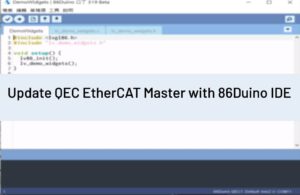[Further Syntax]
描述
#define is a useful C component that allows the programmer to give a name to a constant value before the program is compiled. Defined constants in 86Duino don’t take up any program memory space on the chip. The compiler will replace references to these constants with the defined value at compile time.
This can have some unwanted side effects though, if for example, a constant name that had been #defined is included in some other constant or variable name. In that case the text would be replaced by the #defined number (or text).
In general, the const keyword is preferred for defining constants and should be used instead of #define.
86Duino defines have the same syntax as C defines:
語法
#define constantName value
Note that the # is necessary.
參數
constantName: the name of the macro to define.value: the value to assign to the macro.
Example Code
#define ledPin 3 // The compiler will replace any mention of ledPin with the value 3 at compile time.
Tip
There is no semicolon after the #define statement. If you include one, the compiler will throw cryptic errors further down the page.
#define ledPin 3; // this is an error
Similarly, including an equal sign after the #define statement will also generate a cryptic compiler error further down the page.
#define ledPin = 3 // this is also an error
參考
- [Language] const
- [Language] Constants
語法參考主頁面
86Duino 參考的文本是根據 Creative Commons Attribution-ShareAlike 3.0 License,部分文本是從 the Arduino reference 修改的。 參考中的代碼示例已發佈到公共領域。



